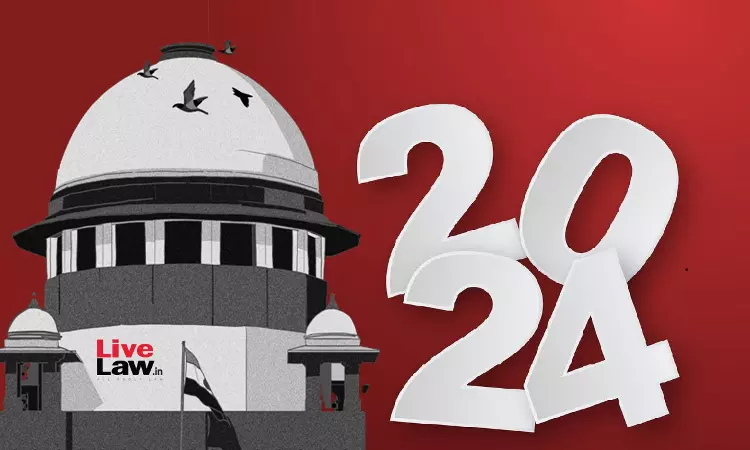Best Of 2024 : Top 5 Supreme Court Decisions Of Past Year
LIVELAW NEWS NETWORK
1 Jan 2025 12:12 PM IST

Next Story
1 Jan 2025 12:12 PM IST
The Supreme Court delivered several notable judgments in 2024 (a compilation of the 100 important judgments of the past year can be read here). Out of these, here is a pick of the top five judgments, which have the effect of strengthening the rule of law, boosting public confidence in the judiciary and triggering a positive change in the social and political spectrum.1. Setting aside...
